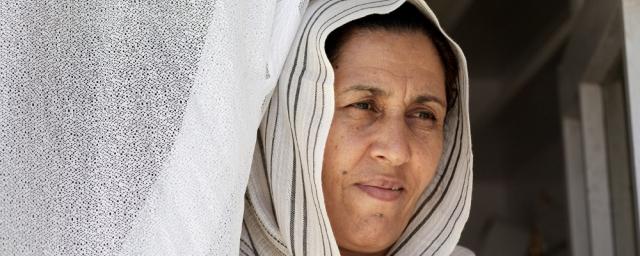
In a country ravaged by three decades of war, peace is a precious commodity. Here in Afghanistan, where an entire generation has known nothing but conflict, violence and instability, whatever peace remains is fragile.
In a small compound an hour out of Kabul, a group of men and women have come together with the intention of changing this. They gather with the hope of creating a generation of Afghans who can grow up in a country without violence and conflict and address the issues that affect their everyday lives. Here, led by a trainer from Oxfam partner AWSDC (Afghan Women Skills Development Centre), the group learns how to bring peace-building strategies and skills to their entire communities.
Together, they form one of Charikar city’s Peace Councils in Parwan province. This council is one of 130 supported by Oxfam throughout Afghanistan. By coming together and discussing the issues of conflict and violence their communities are facing, the councils find ways to mitigate and mediate them. In Charikar city there are two councils, with 12 women sitting on each.
A war weary country

The groups are vital to the future development of Afghanistan. In this war weary country, so much violence has permeated into all areas of the community and Afghans are desperate to live again in peace and security.
Mariam* has been part of this peace council for three years and knows how important these councils are, and the results they can bring to the local communities.
“There have been three decades of war in Afghanistan and each system has been destroyed, as well as peace. There is no peace for anyone in Afghanistan,” says Mariam. “Through these years the people suffered war and they are thirsty for peace."
Community disputes could be considered insignificant against a backdrop of conflict and insurgency, but cases of local disputes can often lead to violence, contributing to the overall insecurity of the nation. However, when addressed at a grassroots level, solving these local conflicts can help bring wider peace to the whole of Afghanistan. In a country where people's lives and livelihoods have been devastated by war, peace must start somewhere.
Starting with small solutions
“We work with families and people in the communities. Acting as intermediaries, we can bring peace to conflict. We start with small solutions for small conflicts. If we start reforming ourselves to have a peaceful mind, we can bring peace,” Mariam explains.
Her group is trying to bring peace in the areas they work on:
- Conflict within families;
- Land conflicts;
- Conflicts regarding irrigation of the land and distribution of water.
“And we are able to find peace,” Mariam says. “These small interventions ultimately can become part of the larger peace.”
Mariam is certain that these small solutions can be transferred to the highest levels, as long as ordinary Afghans are kept at the heart of peace and reconciliation.
“A peaceful family can be extended to the district level, even to the provincial level. We have started from very simple solutions to address the conflicts that exist in the community and it has good results. As we go deeper into these kinds of issues and to the larger cases, then we could have political discussions. We need to bring forward the voices of all Afghans to show the full picture of Afghanistan.”
Ensuring women's participation
The participation of women is vital to the peacebuilding process. Peace simply cannot be achieved if half the nation is unable to help create it. In some areas, where women are not able to join mixed peace councils, ‘women only’ councils are created. Here in Parwan, there is both a mixed and a women only council. Mariam is a member of both.
The women's councils operate in the same way as the larger peace council, identifying conflict, and intervening before violence can escalate into the wider community.
There is no doubt in Mariam’s mind that a peaceful community is the most vital step to real and lasting changes to the lives and livelihoods of ordinary Afghans.
“We want life and without peace there is no life for us. This is why we must try to bring peace,” she insists. Today, during the meeting of the peace council, the city is peaceful, but violence in Afghanistan is never far away.
* Name changed for security reasons
Related links
Report: Community Peacebuilding in Afghanistan (2008)
Photo gallery: The cost of war in Afghanistan
Video: What Afghans want